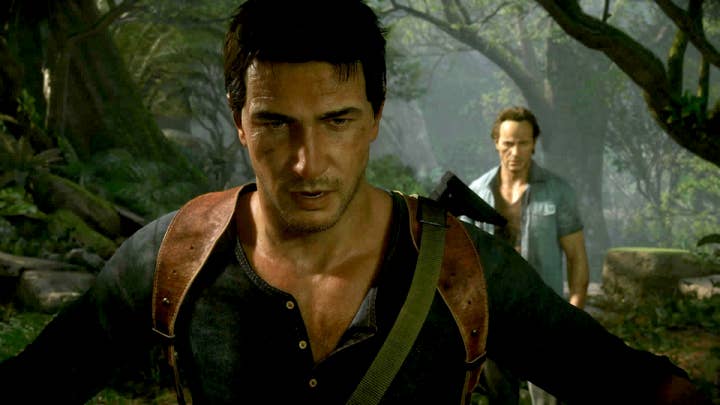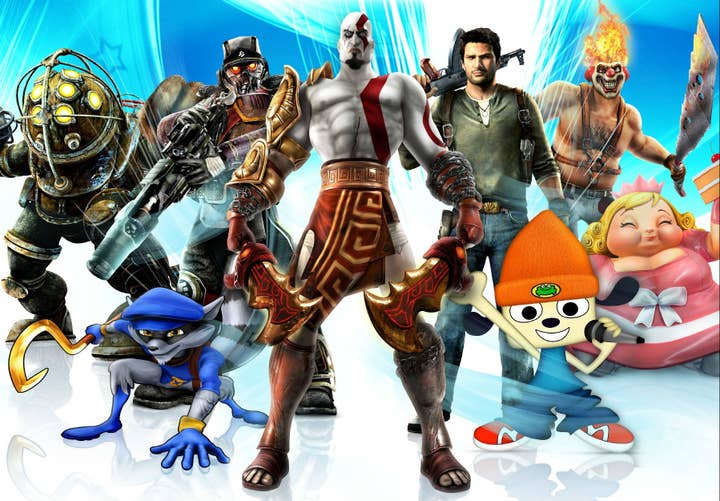Putting PlayStation on the silver screen
Efforts to adapt games to TV and film have generally been poorly received -- but the cultural and business climate we're in may be perfect for Sony's new venture
Sony recently made two announcements with the potential to seriously shape the company's future. The first, which has earned a hell of a lot of headlines, is that it's going to work with Microsoft on cloud services -- a very sensible move given how high the stakes in cloud infrastructure are getting, and a further confirmation of the dramatic turn Microsoft's approach to the gaming space is taking.
The second announcement earned rather less attention, but could nonetheless end up being a defining turn on the road to Sony's future. That announcement concerned a new unit that will handle film and TV productions based on PlayStation game properties: PlayStation Productions.
On the surface, that's nothing new -- game companies have been setting up little divisions aimed at hawking their IP to Hollywood for decades, after all. Success, both creative and commercial, has been extremely limited, but plenty of companies are still pushing this angle. Nintendo is getting behind cross-media adaptations of many of its properties, for example, and several publishers are doing likewise for their top franchises.
"It's essentially the Marvel Studios model, and Sony makes no bones about that being its inspiration"
Sony has a pretty impressive stable of IP, but that's not what makes PlayStation Productions interesting. What makes it interesting, and potentially game-changing if things go well, is that Sony plans to actually handle production of its own projects. It is launching an actual studio, not just an office to farm out IP.
That's essentially the Marvel Studios model, and Sony makes no bones about that being its inspiration. Marvel Studios boss Kevin Feige was one of the people PlayStation Productions' Asad Qizilbash spoke to in order to get an understanding of the industry, which speaks to the ambitions of the new unit. Of course, Sony's PlayStation library is a collection of diverse IPs, not a (sort-of) coherent universe, so the plan won't be to do anything remotely like the MCU. But the way Marvel handled developing and producing its own properties, keeping a grip on their creative direction even while working with some of the media industry's giants, looks like a blueprint PlayStation could certainly do worse than follow.
Much attention will no doubt be paid to the movie side of things, but I suspect that the real opportunity for Sony lies in television. As competition around Netflix heats up, with a round of multi-billion-dollar mergers starting to consolidate content around a handful of players who will all vie for the streaming service throne, the appetite among those companies for original content is going to be absolutely enormous. Netflix alone is spending a fortune annually on original TV content -- including a series based on CD Projekt's The Witcher, due to air later this year -- while Disney is dropping a no-doubt eye-watering amount of money on creating Marvel and Star Wars content for its upcoming streaming service, and Amazon is grabbing many high-profile licenses for Prime Video.
"Detective Pikachu's commercial success opens a lot of doors for other creators and other IPs"
In this climate, a production studio which has full access to the PlayStation IP library and the ability to draw on the experience and know-how of Sony Pictures ought to be worth its weight in gold. It doesn't hurt that this escalation of the competition between streaming services is coming at a point in media history where 'geeky' properties -- fantasy, superhero, science-fiction and so on -- are more mainstream than ever before, making that PlayStation library all the more appealing to would-be buyers.
The timing is pretty much ideal, then, which really just leaves the question mark over whether Sony's new division will actually be able to do justice to its properties on the small (or big) screen. This is an inevitable question, because so few video game adaptations have actually worked well in the past -- not least because, bluntly, most video game adaptations have been pretty bashful and embarrassed about actually being video game adaptations.

There has been a consistent underlying assumption that a movie or TV show based on a game needs to appeal to an audience beyond gamers, an audience of people who will need to have everything explained from scratch and will actually be turned off by too much "game stuff" surviving the adaptation. All too often the consequence has been a movie that doesn't appeal to either side; there's not enough of the things people loved in the source material to excite the existing audience, but also nothing to really draw in the supposed wider audience.
"The library of PlayStation IP is now unquestionably one of the most valuable things it owns"
Reading between the lines of post-mortem type interviews and conversations with people who have worked on these adaptations, a big part of the problem has always been the need for these adaptations to appeal not just to their target audience (whom the creators know are perfectly savvy in the shorthand and culture of videogames), but to the much, much older and far less game-aware studio bosses and executives who get to sign off on final decisions.
On this front, there are some encouraging signs. PlayStation Productions' own launch announcement made the right noises about wanting to use its IP in ways that existing game consumers would enjoy. More importantly, though, I suspect everyone involved in adapting game IP for other media must have been watching the success of Detective Pikachu very closely over the past few weeks. If you'd told me a while ago that the first game IP to be really successfully translated into a movie would be Pokémon, I'd have assumed you'd lost your marbles. But by simply assuming from the very outset that the audience has some familiarity with and enthusiasm for the Pokemon franchise, Detective Pikachu ends up being able to spin together a film that's head and shoulders above most other game adaptations.
Detective Pikachu's commercial success, in spite of (or perhaps because of) avoiding any kind of half-apologetic explanation of what's going on for the uninitiated, opens a lot of doors for other creators and other IPs. It should serve as a reminder that there are multiple generations of potential cinema-goers and TV-watchers out there for whom gaming franchises are intimately familiar.
The potential for game IP to break out beyond the controller is a longstanding topic within the industry, of course, but it's never looked more commercially attractive. It's not just film and TV, either; Nintendo's collaboration with Universal Studios to build a theme park in Osaka is the most high-profile of the moves to push gaming IP into real-world spaces, but there are also a number of interesting developments aimed at creating VR entertainment destinations based on major gaming properties. It's easy to dismiss that end of the industry as small potatoes, and no doubt it will start out that way, but ultimately there's really serious money to be made, as anyone who's compared the revenue from Disney's parks business unit to its movies will quickly have realised.
If Sony can really make a success out of PlayStation Productions, this is a potentially transformative business venture for the company -- the library of PlayStation IP is now unquestionably one of the most valuable things it owns. That stable of IP is pretty wide-ranging and could potentially work for a variety of approaches, from kids TV through to Netflix / HBO style TV blockbusters or theatrical movies. In a landscape littered with the corpses of high-profile failures -- from projects that made it off the ground but sucked to those that just died on the launchpad (looking at Halo, here, not to mention Sony's own previous movie efforts) -- PlayStation Productions could finally be the mix of market climate and company focus that makes game-licensed media properly work.

